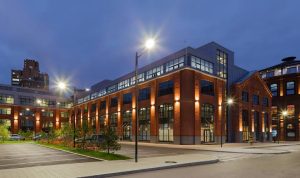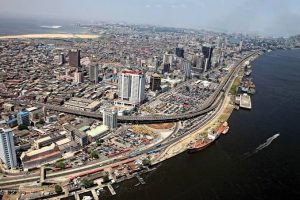
Revitalizing Urban Spaces through Adaptive Reuse in Nigeria: Blue Iroko’s Vision
Revitalizing Urban Spaces through Adaptive Reuse in Nigeria: Blue Iroko’s Vision
In the rapidly urbanizing landscapes of Nigeria, the challenge of managing growing cityscapes often intersects with the need to preserve cultural heritage and optimize resource use. This is where adaptive reuse—an innovative approach to architecture—proves transformative. Blue Iroko, an eminent architecture firm, is at the forefront of this movement, championing the revitalization of urban spaces through thoughtful and strategic adaptive reuse.
Understanding Adaptive Reuse

Adaptive reuse refers to the process of repurposing old or unused buildings for new functions, while retaining their historic and architectural value. This approach not only preserves the cultural and historical essence of structures but also contributes to environmental sustainability by reducing the need for new construction materials and minimizing waste.
In Nigeria, where cities are expanding rapidly and historical sites face the threat of demolition, adaptive reuse presents a vital opportunity. Blue Iroko recognizes the importance of this approach in creating vibrant urban environments that honor the past while embracing the future.
The Urban Landscape in Nigeria
 Nigeria’s urban landscape is undergoing significant transformation. Cities like Lagos, Abuja, and Port Harcourt are expanding at a remarkable pace, driven by population growth and economic development. Amidst this growth, many historic buildings and sites face the risk of neglect or demolition. The challenge lies in balancing modern development with the preservation of historical and cultural heritage.
Nigeria’s urban landscape is undergoing significant transformation. Cities like Lagos, Abuja, and Port Harcourt are expanding at a remarkable pace, driven by population growth and economic development. Amidst this growth, many historic buildings and sites face the risk of neglect or demolition. The challenge lies in balancing modern development with the preservation of historical and cultural heritage.
Blue Iroko’s Approach to Adaptive Reuse
Blue Iroko’s approach to adaptive reuse is rooted in a deep respect for Nigeria’s rich architectural history and cultural heritage. The firm’s projects aim to harmonize historical preservation with contemporary needs, creating spaces that are not only functional but also resonant with the essence of their past.
Preservation and Innovation: Blue Iroko employs cutting-edge technology and innovative design strategies to restore and adapt historic structures. By combining traditional materials with modern techniques, the firm ensures that buildings retain their historical character while meeting contemporary standards of safety and functionality.
Community Engagement: A key aspect of Blue Iroko’s projects is community involvement. The firm works closely with local stakeholders to understand the social and cultural significance of the sites they are redeveloping. This collaborative approach ensures that the revitalized spaces serve the community’s needs and contribute positively to the urban fabric.
Sustainability and Efficiency: Adaptive reuse is inherently sustainable, and Blue Iroko maximizes this benefit by incorporating energy-efficient systems and environmentally friendly practices into their designs. By repurposing existing structures, the firm reduces the environmental impact associated with new construction, aligning with global sustainability goals.
The Future of Adaptive Reuse in Nigeria
As Nigerian cities continue to evolve, the role of adaptive reuse becomes increasingly significant. Blue Iroko’s projects highlight the potential of this approach to address urban challenges while preserving cultural heritage. By embracing adaptive reuse, Nigeria can achieve a harmonious blend of historical preservation and modern development, creating urban environments that are both functional and meaningful.
In the coming years, Blue Iroko aims to expand its adaptive reuse initiatives, exploring new opportunities to transform neglected spaces into vibrant community assets. The firm’s vision is to inspire a broader movement towards sustainable urban development in Nigeria, where every building tells a story and every space contributes to the city’s cultural and social fabric.
In conclusion, adaptive reuse offers a powerful solution to the challenges of urban growth in Nigeria. Through innovative design and a commitment to cultural preservation, Blue Iroko is leading the way in revitalizing urban spaces, proving that the past can indeed be a foundation for the future.
